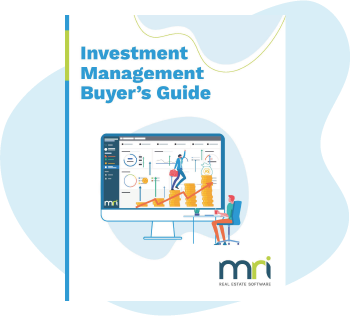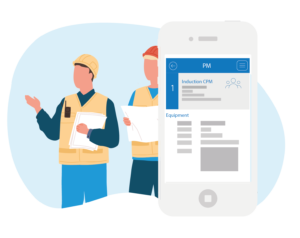Commercial real estate risk management: A strategic approach for investors
Investing in commercial property is a powerful way to build a diversified real estate investment portfolio. Commercial real estate has significant profit potential, but it also carries risks. With the right strategies, you can effectively identify, assess, and manage these risks to maximize your returns.
In this guide, you’ll learn about the common risks and gain actionable commercial real estate risk management strategies.
Exploring risks in commercial real estate
Commercial real estate investments have multiple risks that can impact your portfolio’s value and performance. These risks can be broadly categorized into market risks, operational risks, and financial risks.
Market risks
Market risks are external factors that can affect the performance of your investments. These factors include:
- Economic conditions, such as recessions or booms
- Inflation and interest rate fluctuations
- Changes in supply and demand dynamics
- Political instability or regulatory changes
- Shifts in consumer behavior or market preferences
Let’s look at inflation as an example. In recent years, rising inflation rates have driven up property prices and operating costs while affecting rental income and cap rates. As an investor, you must carefully consider how inflation could influence the value and performance of your properties.
Different commercial real estate sectors come with unique market risks. For example, the retail sector may be more vulnerable to changes in consumer spending, while the office sector might face risks related to remote work trends.
The location of your commercial property can also expose you to varying market risks. Urban areas may experience different economic cycles and demand shifts compared to suburban or rural regions.
Operational risks
Operational risks include the challenges that arise from the day-to-day management and operation of a commercial property. These risks can directly impact the property’s cash flow, tenant satisfaction, and overall profitability. Common operational risks include:
- Property maintenance issues: Poor or delayed maintenance can lead to costly repairs, tenant dissatisfaction, and potential legal liabilities.
- Tenant management challenges: Issues such as tenant turnover, rent defaults, or disputes can disrupt cash flow and increase management costs.
- Regulatory compliance: Failure to comply with local regulations, zoning laws, and building codes can result in fines, legal disputes, or operational interruptions.
Financial risks
Financial risks refer to the uncertainties related to the financial aspects of owning and operating a commercial property. These risks can impact your ability to generate income, maintain cash flow, and achieve long-term profitability. Common financial risks include:
- Interest rate fluctuations: Changes in interest rates can affect the cost of borrowing and refinancing. Higher interest rates can increase debt service costs, reducing overall profitability.
- Loan default risk: If a property’s income does not meet expectations, there is a risk of defaulting on loans. This can lead to foreclosure, loss of the property, and damage to your credit.
- Liquidity risk: Commercial real estate is typically less liquid than other investments. In times of financial strain, selling a property quickly may be challenging, potentially resulting in losses or reduced returns.
Key strategies for commercial real estate risk management
Effective commercial real estate risk management requires a strategic approach. Here are some effective steps you can take to help protect your commercial investments and ensure long-term success.
Geographic and sector diversification
One effective way to mitigate market risks is through geographic and sector diversification.
Geographic diversification involves spreading your investments across different regions or cities. By diversifying, you reduce the impact of local economic downturns or market fluctuations, as not all areas are affected by the same factors at the same time. For example, if one region experiences a decline in demand for office spaces, investments in other regions may still perform well.
Sector diversification means investing in different types of commercial properties, such as office spaces, retail centers, industrial properties, and multifamily units. Each sector has its own set of risks and market dynamics, so diversifying across multiple sectors helps balance your overall risk exposure.
Robust financial planning and budgeting
You can mitigate financial risks with effective financial planning and budgeting. Here’s how to address each of the common financial risks:
Interest rate fluctuations
Choose fixed-rate loans whenever possible to manage the risk of rising interest rates. Fixed-rate loans protect you from sudden interest rate increases and let you budget more effectively.
Loan default risk
To prevent missing your scheduled loan payments, you need to ensure your commercial property is generating sufficient income. Achieving this starts with maintaining a high occupancy rate. This can be accomplished through excellent property management, thorough tenant screening, and securing long-term leases with reliable tenants.
Liquidity risk
One effective way to reduce liquidity risks is to maintain a diversified portfolio that includes more liquid assets, such as real estate investment trusts (REITs). This provides you with quick access to capital if needed.
Due diligence
Operational risks can be avoided with effective due diligence in selecting the commercial property and your tenants.
When choosing a commercial property investment, thoroughly assess the location, market conditions, and potential for appreciation. Examine the property’s physical condition, including any necessary repairs or renovations, to avoid unexpected costs. You should also review zoning laws and future development plans in the area to ensure the property aligns with your investment goals.
When selecting tenants, conduct comprehensive background checks, including credit history, financial stability, and business performance. Verify their ability to meet lease obligations by reviewing financial statements and references. Ensuring tenants have a strong track record and are a good fit for your property can reduce the risk of defaults and maintain a steady income.
Implementing risk management tools and techniques
Technology, insurance, and reserve funds are essential tools in commercial real estate risk management. These tools provide additional layers of protection and help you manage risks more effectively.
Technology solutions
Maintaining a profitable commercial real estate investment starts with having the right technology. Real estate investment management software lets you make smarter investment decisions and manage all risks effectively. This platform provides tools to analyze financial performance, track market trends, and use real-time data to plan for different risk scenarios.
You should also use property management software. This software can automate many tasks, reducing the risk of human error and allowing you to focus on managing your asset portfolio. These platforms can manage leases, track maintenance schedules, and handle tenant communications, so you can reduce operational risks.
Insurance
Appropriate insurance coverage is essential for managing unforeseen events, such as physical property damage, liability issues, and loss of income. For example, if you own a multifamily property, you should have property insurance to protect against damage from accidental fires and liability coverage for potential tenant injuries. Adequate insurance ensures that you can recover from losses without compromising your financial stability.
Reserve funds
Having a reserve fund is crucial for managing financial risks, especially when it comes to avoiding loan defaults. By setting aside funds, you ensure that you have the financial flexibility to cover loan payments during times of unexpected income shortfalls.
To budget for a reserve fund, start by calculating your property’s monthly expenses and setting aside a portion of your income specifically for this purpose. Aim to build up enough reserves to cover at least three to six months of operating costs and loan payments.
Monitoring and adapting to new commercial real estate risks
Commercial real estate is a dynamic market, and risks evolve over time. To stay ahead, you must adopt a proactive approach by continuously assessing new risks and adjusting your strategies to protect your investments.
One growing concern is the high borrowing costs in the US, which is particularly challenging for first-time investors entering the commercial real estate market. Exploring alternative financing options and securing favorable loan terms can mitigate the impact of these higher costs.
Big data and AI are transforming real estate investments, but they also introduce increased cybersecurity risks. It’s essential to incorporate robust cybersecurity measures into your risk management strategy. This can help protect sensitive information and ensure you remain compliant with data protection regulations.
Certain sectors, such as traditional office spaces, face significant shifts due to the rise of remote work. To mitigate the risks associated with decreased demand, consider repurposing or redesigning office properties to accommodate hybrid work models. This approach can help maintain occupancy rates and keep your properties competitive in a changing market.
Manage real estate investment risks with MRI Software
MRI Software is your essential partner in mitigating commercial real estate risks. Our advanced real estate investment platform provides real-time data and insights on evolving market conditions so you can anticipate and respond to risks before they impact your investment profitability. With enhanced accuracy and comprehensive visibility into your portfolio, our customizable platform empowers you to make informed decisions.
Investment Management Buyer's Guide
Reduce risk and attract investors with real estate investment management technology

AVR Realty improves reporting efficiency with Spreadsheet Server and MRI Software
About AVR Realty Founded by Allan V. Rose, AVR Realty Company (AVR) is a leading private real estate development, investment, and management firm. Headquartered in New York, its portfolio covers 20 states and over 70 cities, including hotels, multifa…

